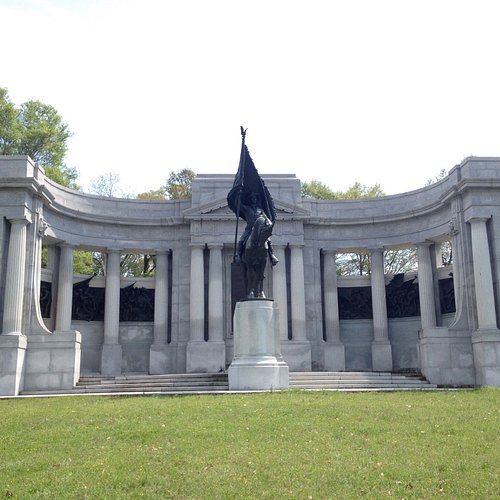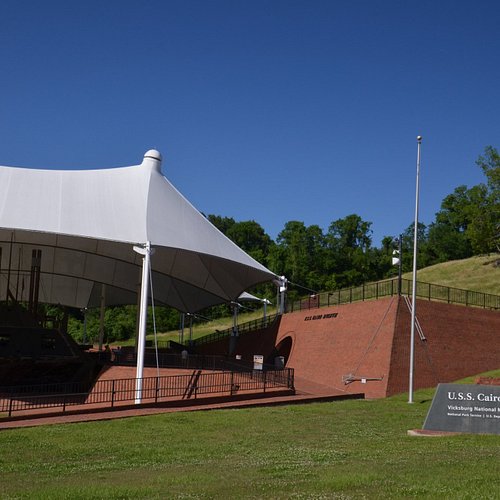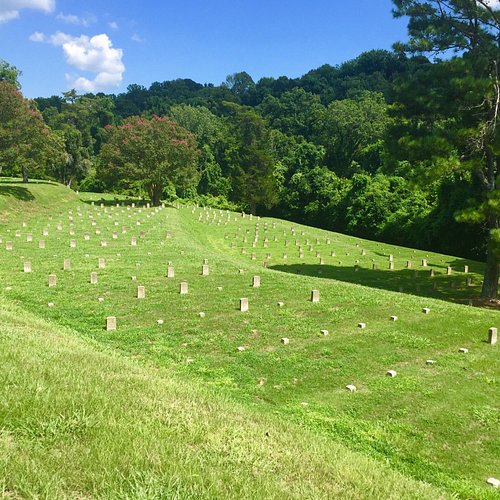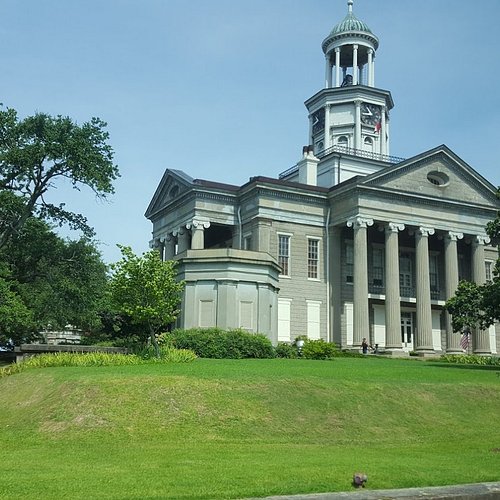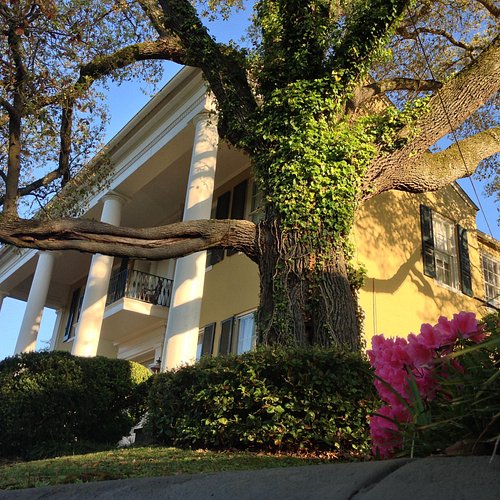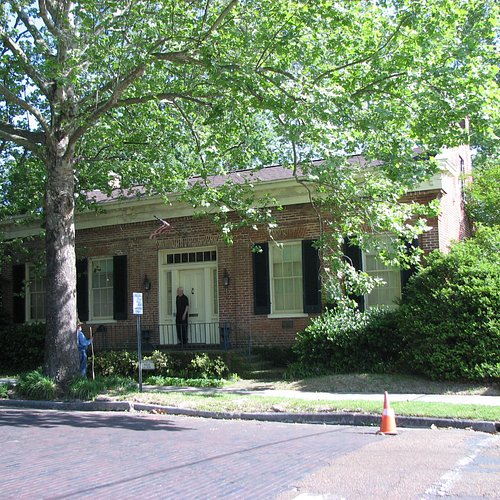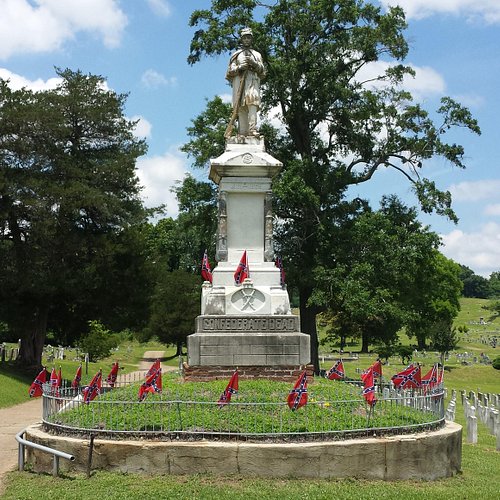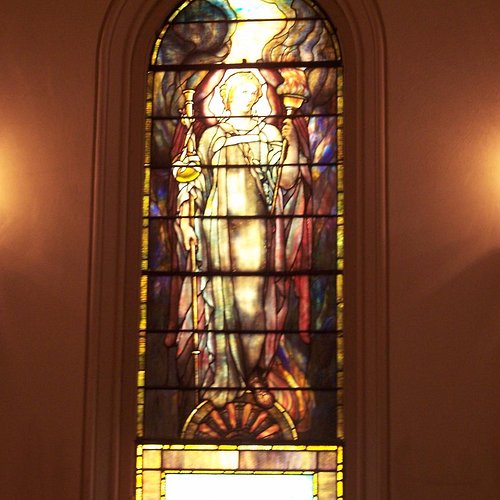Top 10 Sights & Landmarks in Vicksburg, Mississippi (MS)
Sitting high atop a bluff overlooking the Mississippi and Yazoo Rivers, the city of Vicksburg was the setting of a bloody 47 day siege during the Civil War. The site of this epic battle is now Vicksburg National Military Park, preserving original fortifications and the U.S.S. Cairo, an ironclad gunboat that once prowled the waters of the Mississippi River. Vicksburg is also the place where Coca-Cola was first bottled, a fact that is happily immortalized at the Biedenharn Coca-Cola Museum.
Restaurants in Vicksburg
1. Vicksburg Campaign Trail
Overall Ratings
5.0 based on 38 reviews
The 200-mile route that Grant took before capturing Vicksburg.
Reviewed By 866TaylorB - Chicago, United States
For a Civil War historian, following the Vicksburg Campaign Trail in Mississippi is similar to following Lee's Retreat from Petersburg to Appomattox in Virginia. In 1863, General Ulysses S. Grant spent months trying to find a way to seize Vicksburg and sever the Confederates' control of the Mississippi River. Attempts to bypass Confederate defenses at Grand Gulf and the Yazoo River, to the north of Vicksburg, failed miserably. He even tried to build a canal to open a better navigational route to the city. The canal flooded. Finally, Grant decided to march his army south along the west side of the Mississippi River, cross at Bruinsburg, west of Port Gibson, then proceed to Jackson, the state capitol, and approach Vicksburg from the east. So the Vicksburg Campaign Trail takes travelers from Port Gibson to Jackson to Raymond to Champion Hill to the Big Black River and finally to Vicksburg, where you can take a 16-mile tour of Vicksburg Military Park. The trail is well documented through thousands of historical monuments and markers. One of the most interesting stops in the park is at Shirley House, the only surviving wartime structure. Of all the monuments to the soldiers who participated in the 47-day siege, the Illinois monument is most impressive.
2. U.S.S. Cairo Museum
Overall Ratings
5.0 based on 1,481 reviews
Tour the first boat to be sunk by a torpedo.
Reviewed By 866TaylorB - Chicago, United States
My wife and I have visited Vicksburg National Military Park on other occasions so we weren't terribly disappointed when we realized on our most recent trip that the USS Cairo Museum was closed because of the COVID pandemic. Of course, visitors can park in the parking lot and stroll around one of the first American ironclad warships built at the beginning of the Civil War. Inside or outside, the Cairo is an impressive site. After participating in the capture of Fort Pillow on the Mississippi River in June 1862, it was sunk in December 1862 while clearing mines for the attack on Haines Bluff on the Yazoo River. It was the first ship ever to be sunk by a mine remotely detonated by hand. Over the years, the ship was forgotten and slowed covered by silt and sand. It was found in 1956 and salvaged from the bottom of the river in 1965. Listed on the National Register of Historic Places in 1971, the Cairo was opened as a museum in a shelter on the tour road near the Vicksburg National Cemetery in the Vicksburg National Military Park in November 1980. The recovery of artifacts from the ship revealed a treasure trove of weapons, ammunition, naval stores and personal gear of the sailors who served on board. Externally, visitors can see one of the cannons on the side of the Cairo and the framework for the paddlewheels.
3. Vicksburg National Military Park
Overall Ratings
4.5 based on 3,023 reviews
1800 acres of now peaceful countryside, this park was once the scene of a bloody 47-day Civil War battle.
Reviewed By pamgoes
There are several tour options available: self-guided Driving tour using the included brochure and map, cell phone driving tour, an audio tour CD (purchased at the Visitor’s Center for $15), the Civil War Trust Vicksburg app (free), or the licensed park Tour Guides. We were on an excursion with the American Queen and had a licensed park tour guide, Harry McMillin. He was phenomenal! Our tour began with a viewing of a short film which gave a realistic re-enactment and review of the battle at Vicksburg during the Civil War. The tour is mostly a driving tour with stops to view impressive markers erected by the states whose soldiers fought the war and to get an idea of the strategies for the campaigns. Also on sight is the USS Cairo Gunboat and Museum where the salvaged ironclad, Cairo, can be viewed. We spent three + hours in the park and learned so much more than I thought possible. Harry is a font of knowledge with many educational and interesting stories to tell. It is clear he loves his job and we are grateful that he shares his knowledge with us so well.
4. Vicksburg National Cemetery
Overall Ratings
4.5 based on 387 reviews
Established by the U.S. Congress in 1865 as a military burial ground, the 116-acre cemetery is the final resting place of more than 17,000 Union Soldiers.
Reviewed By janetrM8526JB - Pensacola, United States
Drive through park, takes a while to see everything. Amazing place for Civil War History, worth the time to see this place.
5. Old Courthouse
Overall Ratings
4.5 based on 459 reviews
Reviewed By marionz87 - Stuart, United States
This museum is amazing! There’s room after room of Civil War history and possessions. I learned so much about Vicksburg and it’s role, in the Civil War! I’d say- this museum is a must see/do!
6. Anchuca Mansion
Overall Ratings
4.5 based on 116 reviews
Tour Anchuca Mansion, Vicksburg's first Columned Mansion and the town's first antebellum homes to open to the public for daily tours in 1955. This Greek revival landmark, listed on the National Register of Historic Places, opens it doors to visitor from 9:30 a.m. to 4:00 p.m. daily. Walk in the footsteps of many famous Americans, including President Jefferson Davis, to see the opulent interiors with fine antiques and art representing the past three centuries. Tours are $10.00 per person. Most all major credit cards are excepted. Thank you for helping preserve Anchuca.
Reviewed By whois23
The tour starts out with a short film narrated by a former resident of the house, and then you are allowed to go on a self-guided tour at your own pace. We really enjoyed it, and learned a lot about Anchuca.
7. Martha Vick House
Overall Ratings
4.5 based on 11 reviews
Reviewed By whois23
We wore masks, our guide wore a mask, and so with social distancing we felt safe during this uneasy time of Covid-19. The house has a wonderful history that was fascinating to listen to, and the decorations, furnishings, and collections were amazing. We enjoyed the tour, and highly recommend it.
8. Vicksburg Riverfront Murals
Overall Ratings
4.5 based on 522 reviews
Reviewed By 866TaylorB - Chicago, United States
The Vicksburg Riverfront Murals didn't exist the last time my wife and I visited Vicksburg, Mississippi. So add another interesting tourist attraction to the list of sites to see on your travel itinerary. It is a series of 32 murals painted on Mississippi River flood walls. Unveiled in 2002, they are intended to depict the city's historical significance as well as its envisioned future role in the region's commerce and culture. They show a timeline of Vicksburg history, including downtown Vicksburg in the days following the 1953 tornado, the steamboat Sprague during the roaring 1880s, ferry boats transporting train cars across the river and The Famous Teddy Bear Hunt. Artist Robert Dafford, who completed similar murals in Cincinnati, Ohio, Paducah, Kentucky, Portsmith, Ohio, and Maryville, Ohio, was commissioned to complete the first series of 12-feet by 20-feet panels along the flood wall facing Levee Street. In 2012, a 55-foot mural was commissioned to be painted on the Grove Street flood wall, across the street from the Levee Street murals. It is designed to be triangular in shape due to Grove Street's incline. It is a feature along the route of the annual 10K Run Thru History event and depicts a group of runners passing by areas of historical significance in Vicksburg.
9. Cedar Hill Cemetery
Overall Ratings
4.5 based on 47 reviews
Reviewed By 866TaylorB - Chicago, United States
Cedar Hill Cemetery in Vicksburg, Mississippi, is as celebrated or as visited as such iconic cemeteries as Arlington in Washington DC, Hollywood in Richmond, Virginia, and Graceland in Chicago. Located at 326 Lovers Lane, Cedar Hill predates the Civil War and remains as one of the oldest and largest cemeteries in the United States that is still in use. It contains the graves of over 5,000 Confederate soldiers with over 1,600 of them identified, including Major General John Stevens Bowen, who was killed during the siege of Vicksburg in 1863. Two other Confederate generals, Isham Warren Garrott and Martin Edward Green, who also were killed at Vicksburg, also are buried on the beautifully landscaped Soldiers' Rest plot. But the most interesting and most popular attraction in the cemetery is Douglas the camel, a domesticated camel that was used by the Confederate army to transport supplies during the Civil War.
10. The Church of the Holy Trinity
Overall Ratings
4.5 based on 21 reviews
Reviewed By marion542017 - Manchester, United Kingdom
The architecture of the Church of the Holy Trinity is stunning in the Romanesque Revival-style and features twenty-six magnificent stained-glass windows. Six of the stained-glass windows are by Louis Comfort Tiffany. The Tiffany windows are astonishingly beautiful and incredible close-up and to touch.

